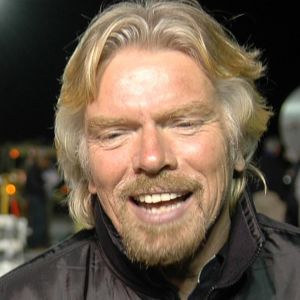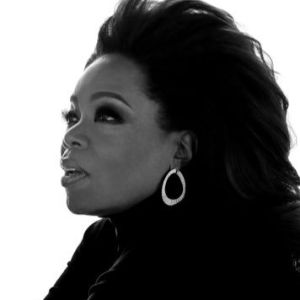Want to know what books Bill Earner recommends on their reading list? We've researched interviews, social media posts, podcasts, and articles to build a comprehensive list of Bill Earner's favorite book recommendations of all time.
1

The bestselling classic on disruptive innovation, renowned author Clayton M. Christensen.
His work is cited by the world’s best-known thought leaders, from Steve Jobs to Malcolm Gladwell. In this classic bestseller—now updated with a fresh new package—innovation expert Clayton Christensen shows how even the most outstanding companies can do everything right—yet still lose market leadership. Read this international bestseller to avoid a similar fate.
Clay Christensen—who authored the award-winning Harvard Business Review article How Will You Measure Your... more The bestselling classic on disruptive innovation, renowned author Clayton M. Christensen.
His work is cited by the world’s best-known thought leaders, from Steve Jobs to Malcolm Gladwell. In this classic bestseller—now updated with a fresh new package—innovation expert Clayton Christensen shows how even the most outstanding companies can do everything right—yet still lose market leadership. Read this international bestseller to avoid a similar fate.
Clay Christensen—who authored the award-winning Harvard Business Review article How Will You Measure Your Life?”—explains why most companies miss out on new waves of innovation. No matter the industry, he says a successful company with established products WILL get pushed aside unless managers know how and when to abandon traditional business practices. Offering both successes and failures from leading companies as a guide, The Innovator’s Dilemma gives you a set of rules for capitalizing on the phenomenon of disruptive innovation.
Sharp, cogent, provocative, and one of the most influential business books of all time—The Innovator’s Dilemma is the book no manager or entrepreneur should be without. Add this newly released edition to your library.
Published by Harvard Business Review Press. less 
Steve JobsIt's important that we make this transformation, because of what Clayton Christensen calls "the innovator's dilemma," where people who invent something are usually the last ones to see past it, and we certainly don't want to be left behind. (Source)

Jeff BezosBrad Stone's new book, The Everything Store, describes how Bezos developed this strategy after reading another book called The Innovator's Dilemma by Harvard professor Clayton Christensen. (Source)

Tim O'ReillyThe Innovator's Dilemma, by Clayton Christensen. An analysis of why great companies fail, because innovation often requires throwing out everything that has made you successful in the past. Disruptive technologies are often born on the fringes, in markets where worse is better. (Source)
2

From the bestselling author of The Black Swan and one of the foremost philosophers of our time, Nassim Nicholas Taleb, a book on how some systems actually benefit from disorder.
In The Black Swan Taleb outlined a problem; in Antifragile he offers a definitive solution: how to gain from disorder and chaos while being protected from fragilities and adverse events. For what he calls the "antifragile" is one step beyond robust, as it benefits from adversity, uncertainty and stressors, just as human bones get stronger when subjected to stress and tension.
Taleb stands... more From the bestselling author of The Black Swan and one of the foremost philosophers of our time, Nassim Nicholas Taleb, a book on how some systems actually benefit from disorder.
In The Black Swan Taleb outlined a problem; in Antifragile he offers a definitive solution: how to gain from disorder and chaos while being protected from fragilities and adverse events. For what he calls the "antifragile" is one step beyond robust, as it benefits from adversity, uncertainty and stressors, just as human bones get stronger when subjected to stress and tension.
Taleb stands uncertainty on its head, making it desirable, and proposing that things be built in an antifragile manner. Extremely ambitious and multidisciplinary, Antifragile provides a blueprint for how to behave-and thrive-in a world we don't understand and which is too uncertain for us to even try to understand. He who is not antifragile will perish. Why is the city state better than the nation state, why is debt bad for you, and why is almost everything modern bound to fail? The book covers innovation, health, biology, medicine, life decisions, politics, foreign policy, urban planning, war, personal finance, and economic systems. Throughout, the voice and recipes of the ancient wisdom from Phoenician, Roman, Greek, and Medieval sources are heard loud and clear. less 
Marvin Liaoeval(ez_write_tag([[250,250],'theceolibrary_com-leader-2','ezslot_7',164,'0','1']));
My list would be (besides the ones I mentioned in answer to the previous question) both business & Fiction/Sci-Fi and ones I personally found helpful to myself. The business books explain just exactly how business, work & investing are in reality & how to think properly & differentiate yourself. On... (Source)

James AltucherYou ask about success. To be successful you have to avoid being “fragile” – the idea that if something hurts you, you let collapse completely. You also have to avoid simply being resilient. Bouncing back is not enough. Antifragile is when something tries to hurt you and you come back stronger. That is real life business. That is real life success. Nassim focuses on the economy. But when I read... (Source)

Vlad TenevThe general concept is applicable to many fields beyond biology, for instance finance, economics and monetary policy. (Source)
3

If you want to build a better future, you must believe in secrets.
The great secret of our time is that there are still uncharted frontiers to explore and new inventions to create. In Zero to One, legendary entrepreneur and investor Peter Thiel shows how we can find singular ways to create those new things.
Thiel begins with the contrarian premise that we live in an age of technological stagnation, even if we’re too distracted by shiny mobile devices to notice. Information technology has improved rapidly, but there is no reason why progress should be limited to... more If you want to build a better future, you must believe in secrets.
The great secret of our time is that there are still uncharted frontiers to explore and new inventions to create. In Zero to One, legendary entrepreneur and investor Peter Thiel shows how we can find singular ways to create those new things.
Thiel begins with the contrarian premise that we live in an age of technological stagnation, even if we’re too distracted by shiny mobile devices to notice. Information technology has improved rapidly, but there is no reason why progress should be limited to computers or Silicon Valley. Progress can be achieved in any industry or area of business. It comes from the most important skill that every leader must master: learning to think for yourself.
Doing what someone else already knows how to do takes the world from 1 to n, adding more of something familiar. But when you do something new, you go from 0 to 1. The next Bill Gates will not build an operating system. The next Larry Page or Sergey Brin won’t make a search engine. Tomorrow’s champions will not win by competing ruthlessly in today’s marketplace. They will escape competition altogether, because their businesses will be unique.
Zero to One presents at once an optimistic view of the future of progress in America and a new way of thinking about innovation: it starts by learning to ask the questions that lead you to find value in unexpected places. less 
Elon MuskPeter Thiel has built multiple breakthrough companies, and Zero to One shows how.” - Elon Mus (Source)

Mark ZuckerbergThis book delivers completely new and refreshing ideas on how to create value in the world. (Source)

Nassim Nicholas TalebWhen a risk taker writes a book, read it. In the case of Peter Thiel, read it twice. Or, to be safe, three times. This is a classic. (Source)
4

Gabriel Garcia Marquez | 4.14
The brilliant, bestselling, landmark novel that tells the story of the Buendia family, and chronicles the irreconcilable conflict between the desire for solitude and the need for love—in rich, imaginative prose that has come to define an entire genre known as "magical realism." more The brilliant, bestselling, landmark novel that tells the story of the Buendia family, and chronicles the irreconcilable conflict between the desire for solitude and the need for love—in rich, imaginative prose that has come to define an entire genre known as "magical realism." less 
Richard BransonToday is World Book Day, a wonderful opportunity to address this #ChallengeRichard sent in by Mike Gonzalez of New Jersey: Make a list of your top 65 books to read in a lifetime. (Source)

Barack ObamaWhen asked what books he recommended to his 18-year-old daughter Malia, Obama gave the Times a list that included The Naked and the Dead and One Hundred Years of Solitude. “I think some of them were sort of the usual suspects […] I think she hadn’t read yet. Then there were some books that are not on everybody’s reading list these days, but I remembered as being interesting.” Here’s what he... (Source)

Oprah WinfreyBrace yourselves—One Hundred Years of Solitude by Gabriel García Márquez is as steamy, dense and sensual as the jungle that surrounds the surreal town of Macondo! (Source)
5

Helen DeWitt’s 2000 debut, The Last Samurai, was “destined to become a cult classic” (Miramax). The enterprising publisher sold the rights in twenty countries, so “Why not just, ‘destined to become a classic?’” (Garth Risk Hallberg) And why must cultists tell the uninitiated it has nothing to do with Tom Cruise?
Sibylla, an American-at-Oxford turned loose on London, finds herself trapped as a single mother after a misguided one-night stand. High-minded principles of child-rearing work disastrously well. J. S. Mill (taught Greek at three) and Yo Yo Ma (Bach at two)... more Helen DeWitt’s 2000 debut, The Last Samurai, was “destined to become a cult classic” (Miramax). The enterprising publisher sold the rights in twenty countries, so “Why not just, ‘destined to become a classic?’” (Garth Risk Hallberg) And why must cultists tell the uninitiated it has nothing to do with Tom Cruise?
Sibylla, an American-at-Oxford turned loose on London, finds herself trapped as a single mother after a misguided one-night stand. High-minded principles of child-rearing work disastrously well. J. S. Mill (taught Greek at three) and Yo Yo Ma (Bach at two) claimed the methods would work with any child; when these succeed with the boy Ludo, he causes havoc at school and is home again in a month. (Is he a prodigy, a genius? Readers looking over Ludo’s shoulder find themselves easily reading Greek and more.) Lacking male role models for a fatherless boy, Sibylla turns to endless replays of Kurosawa’s masterpiece Seven Samurai. But Ludo is obsessed with the one thing he wants and doesn’t know: his father’s name. At eleven, inspired by his own take on the classic film, he sets out on a secret quest for the father he never knew. He’ll be punched, sliced, and threatened with retribution. He may not live to see twelve. Or he may find a real samurai and save a mother who thinks boredom a fate worse than death. less 
Ken TremendousLook I don’t have any idea what the best books of the decade were but I’m ending the ‘teens reading The Last Samurai by Helen DeWitt and it’s incredible. How did none of you tell me about this book until now, you jerks, you heathens?! (Source)

Bill EarnerMy favorites [novels] are 100 Years of Solitude, All the King's Men, The Last Samurai, and Fear and Loathing in Las Vegas. (Source)
6

Winner of the Pulitzer Prize, this classic book is generally regarded as the finest novel ever written on american politics. It describes the career of Willie Stark, a back-country lawyer whose idealism is overcome by his lust for power. New Foreword by Joseph Blotner for this fiftieth anniversary edition.
more Winner of the Pulitzer Prize, this classic book is generally regarded as the finest novel ever written on american politics. It describes the career of Willie Stark, a back-country lawyer whose idealism is overcome by his lust for power. New Foreword by Joseph Blotner for this fiftieth anniversary edition.
less 
Bill EarnerMy favorites [novels] are 100 Years of Solitude, All the King's Men, The Last Samurai, and Fear and Loathing in Las Vegas. (Source)

Heather BrookeThis is a great mix of politics and journalism. It shows the way the two work together in a symbiotic relationship where they both need and hate each other. The newspaper guy is Jack Burden and he goes to work for Willie Stark – who starts off as a fresh-faced, incredibly idealistic and very ambitious man-of-the-people politician. (Source)
7

Now a decade after the Four Steps to the Epiphany
sparked the Lean Startup revolution, comes its sequel…
The Startup Owner's Manual
The Manual incorporates 10 years of learning and best practices
that have swept the startup world. It:
Incorporates the "Business Model Canvas" as the organizing principle for
startup hypotheses
Provides separate paths and advice for web/mobile products versus
physical products
Offers a wealth of detailed instruction on how to get, keep, and grow
customers recognizing the different techniques... more Now a decade after the Four Steps to the Epiphany
sparked the Lean Startup revolution, comes its sequel…
The Startup Owner's Manual
The Manual incorporates 10 years of learning and best practices
that have swept the startup world. It:
Incorporates the "Business Model Canvas" as the organizing principle for
startup hypotheses
Provides separate paths and advice for web/mobile products versus
physical products
Offers a wealth of detailed instruction on how to get, keep, and grow
customers recognizing the different techniques for web and physical channels
And teaches a "new math" for startups: "metrics that matter for fueling growth"
The Startup Owner's Manual is a step-by-step, near-encyclopedic reference manual or "how to" for building a successful, scalable startup.
Want to know what to do the first, week, month or year?
What's the right distribution channel for your product?
How to get traffic to your web site?
…and how to activate customers or users on arrival?
Who are the right "first customers," and why?
…plus many more great tips in nearly 500 pages, complete with index,
glossary, and Customer Development Checklists
It's the indispensible reference guide for any startup founder, entrepreneur, investor or educator. less 
Bill EarnerThe Startup Owner's Manual by Steve Blank is a more full on version of the Lean Startup and is a real how to manual for customer development (Source)
8

Certain to Win [Sun Tzu's prognosis for generals who follow his advice] develops the strategy of the late US Air Force Colonel John R. Boyd for the world of business.
The success of Robert Coram's monumental biography, Boyd, the Fighter Pilot Who Changed the Art of War, rekindled interest in this obscure pilot and documented his influence on military matters ranging from his early work on fighter tactics to the USMC's maneuver warfare doctrine to the planning for Operation Desert Storm. Unfortunately Boyd's written legacy, consisting of a single paper and a four-set cycle of... more Certain to Win [Sun Tzu's prognosis for generals who follow his advice] develops the strategy of the late US Air Force Colonel John R. Boyd for the world of business.
The success of Robert Coram's monumental biography, Boyd, the Fighter Pilot Who Changed the Art of War, rekindled interest in this obscure pilot and documented his influence on military matters ranging from his early work on fighter tactics to the USMC's maneuver warfare doctrine to the planning for Operation Desert Storm. Unfortunately Boyd's written legacy, consisting of a single paper and a four-set cycle of briefings, addresses strategy only in war.
Boyd and Business
Boyd did study business. He read everything he could find on the Toyota Production System and came to consider it as an implementation of ideas similar to his own. He took business into account when he formulated the final version of his OODA loop and in his last major briefing, Conceptual Spiral, on science and technology. He read and commented on early versions of this manuscript, but he never wrote on how business could operate more profitably by using his ideas.
Other writers and business strategists have taken up the challenge, introducing Boyd's concepts and suggesting applications to business. Keith Hammonds, in the magazine Fast Company, George Stalk and Tom Hout in Competing Against Time, and Tom Peters most recently in Re-imagine! have described the OODA loop and its effects on competitors.
They made significant contributions. Successful businesses, though, don t concentrate on affecting competitors but on enticing customers. You could apply Boyd all you wanted to competitors, but unless this somehow caused customers to buy your products and services, you ve wasted time and money. If this were all there were to Boyd, he would rate at most a sidebar in business strategy.
Business is not War
Part of the problem has been Boyd's focus on war, where affecting competitors is the whole idea. Armed conflict was Boyd's life for nearly 50 years, first as a fighter pilot, then as a tactician and an instructor of fighter pilots, and after his retirement, as a military philosopher. Coram describes (and I know from personal experience) how his quest consumed Boyd virtually every waking hour.
It was not a monastic existence, though, since John was above everything else a competitor and loved to argue over beer and cigars far into the night. During most of the 1970s and 80s he worked at the Pentagon, where he could share ideas and debate with other strategists and practitioners of the art of war. The result was the remarkable synthesis we know as Patterns of Conflict. Discussions about generals and campaigns, however, did not give Boyd much insight into competition in other areas, like business
Now you might expect, at first glance, that business is so much like war that lifting concepts from one and applying them to the other would be straightforward. But think about that for a minute. Even in its simplest description, business doesn't really look much like war. For one thing, there are always three sides to business competition: you, customers, and competitors. Often it is vastly more complex, with a multitude of competitors who are customers of each other as well. In business, unlike war, it may even be desirable to be conquered by a competitor in a lucrative merger or acquisition. Finally, and most important, it is rarely possible to defeat the other player in the triangle, that is, to compel an unwilling customer to buy. Attempts to pressure customers into paying too much or into buying more than they need often open a window for competitors (as the US airline industry is belatedly discovering.) Generally all we can do is attract offer products and services to potential customers, whose decisions determine who wins and who loses.
What this means is that the strategies and tactics of war, Boyd's included, are destructive in nature and so never apply to business. Expressions like Attack enemy weaknesses have no meaning, except as metaphors and analogies. Across different domains, such literary devices are as likely to be misleading as helpful.
Boyd's Strategy Still Applies
Business is not war, but it is a form of conflict, a situation where one group can win only if another group loses. If you dig beneath Boyd's war-centered tactics you find a general strategy for ensuring that in most any type of conflict your group will be the one that wins.
Although Boyd made a number of new and fundamental contributions, his is an ancient school, extending back in written form 2,500 years. It is built around two primary themes:
A focus on time (not speed) and specifically, using dislocations in time to shape the competitive situation. These effects, by the way, are quite different in business than they are in war.
A culture with attributes that enable even impel organizations to exploit time for competitive advantage. Within Boyd's culture, members will seek out or invent specific practices that will work for it.
Why You Should Read this Book
This book will give you a firm foundation in Boyd's strategy, starting with its military roots, but it is not a how-to manual. There could never be such a manual for strategy since all sides could use it and so would derive no strategic benefit. Anything you can write a how-to manual for is tactics or even technique. Strategy begins where these leave off.
You should read this book if you ve found other books on business strategy lacking something. You should read it if you appreciate that Sun Tzu seems to be revealing fundamental truths, but it's not clear what they have to do with business. You should read it if you intend to run your own show without the decision making by committee, shunning of responsibility, and breakdown of ethics and trust that you see around you every day. less 
Bill EarnerIt's a short but deep book about John Boyd and his strategies, the most famous of which is the OODA loop. (Source)
9

Hunter S. Thompson | 4.29
Fear and Loathing in Las Vegas is the best chronicle of drug-soaked, addle-brained, rollicking good times ever committed to the printed page. It is also the tale of a long weekend road trip that has gone down in the annals of American pop culture as one of the strangest journeys ever undertaken. more Fear and Loathing in Las Vegas is the best chronicle of drug-soaked, addle-brained, rollicking good times ever committed to the printed page. It is also the tale of a long weekend road trip that has gone down in the annals of American pop culture as one of the strangest journeys ever undertaken. less 
Bill EarnerMy favorites [novels] are 100 Years of Solitude, All the King's Men, The Last Samurai, and Fear and Loathing in Las Vegas. (Source)

Matthew O’BrienIt’s one of my favourite books and probably my favourite Las Vegas-related book. Hunter S Thompson came out here in the early 70s to cover the Mint 400 off-road race for Sports Illustrated. He ended up writing a 10,000-word riff on his visit. In 1971, Jann Wenner ultimately published two long sections of it in Rolling Stone. Those two stories were the foundation for Fear and Loathing in Las Vegas. (Source)
10

Here for the first time, in rich, human, political, and scientific detail, is the complete story of how the bomb was developed, from the turn-of-the-century discovery of the vast energy locked inside the atom to the dropping of the first bombs on Japan.
Few great discoveries have evolved so swiftly - or have been so misunderstood. From the theoretical discussions of nuclear energy to the bright glare of Trinity there was a span of hardly more than twenty-five years. What began as merely an interesting speculative problem in physics grew into the Manhattan Project, and then into the... more Here for the first time, in rich, human, political, and scientific detail, is the complete story of how the bomb was developed, from the turn-of-the-century discovery of the vast energy locked inside the atom to the dropping of the first bombs on Japan.
Few great discoveries have evolved so swiftly - or have been so misunderstood. From the theoretical discussions of nuclear energy to the bright glare of Trinity there was a span of hardly more than twenty-five years. What began as merely an interesting speculative problem in physics grew into the Manhattan Project, and then into the Bomb with frightening rapidity, while scientists known only to their peers-Szilard, Teller, Oppenheimer, Bohr, Meitner, Fermi, Lawrence, and yon Neumann-stepped from their ivory towers into the limelight.
Richard Rhodes takes us on that journey step by step, minute by minute, and gives us the definitive story of man's most awesome discovery and invention. The Making of the Atomic Bomb has been compared in its sweep and importance to William L. Shirer's The Rise and Fall of the Third Reich. It is at once a narrative tour de force and a document as powerful as its subject. less 
Bill EarnerMy favorite book is The Making of the Atomic Bomb by Richard Rhodes. It's a book that covers a vast range of topics over a fifty year period. It talks about the scientific advances that led to the bomb, the personalities that made those advances, and at the same time covers the political choices and escalation of violence over the course of the first half of the 20th Century that paint the use of... (Source)

Tom ClarkeThis is the best history of the greatest minds in science alive at the time, or maybe ever, and how they were brought together to build this bomb. (Source)
Don't have time to read Bill Earner's favorite books? Read Shortform summaries.
Shortform summaries help you learn 10x faster by:
- Being comprehensive: you learn the most important points in the book
- Cutting out the fluff: you focus your time on what's important to know
- Interactive exercises: apply the book's ideas to your own life with our educators' guidance.
11

The classic guide to constructing a solid portfolio--without a financial advisor!
"With relatively little effort, you can design and assemble an investment portfolio that, because of its wide diversification and minimal expenses, will prove superior to the most professionally managed accounts. Great intelligence and good luck are not required."
William Bernstein's commonsense approach to portfolio construction has served investors well during the past turbulent decade--and it's what made The Four Pillars of Investing an instant classic when it was... more The classic guide to constructing a solid portfolio--without a financial advisor!
"With relatively little effort, you can design and assemble an investment portfolio that, because of its wide diversification and minimal expenses, will prove superior to the most professionally managed accounts. Great intelligence and good luck are not required."
William Bernstein's commonsense approach to portfolio construction has served investors well during the past turbulent decade--and it's what made The Four Pillars of Investing an instant classic when it was first published nearly a decade ago.
This down-to-earth book lays out in easy-to-understand prose the four essential topics that every investor must master: the relationship of risk and reward, the history of the market, the psychology of the investor and the market, and the folly of taking financial advice from investment salespeople.
Bernstein pulls back the curtain to reveal what really goes on in today's financial industry as he outlines a simple program for building wealth while controlling risk. Straightforward in its presentation and generous in its real-life examples, The Four Pillars of Investing presents a no-nonsense discussion of:
The art and science of mixing different asset classes into an effective blend The dangers of actively picking stocks, as opposed to investing in the whole market Behavioral finance and how state of mind can adversely affect decision making Reasons the mutual fund and brokerage industries, rather than your partners, are often your most direct competitors Strategies for managing all of your assets--savings, 401(k)s, home equity--as one portfolio Investing is not a destination. It is a journey, and along the way are stockbrokers, journalists, and mutual fund companies whose interests are diametrically opposed to yours.
More relevant today than ever, The Four Pillars of Investing shows you how to determine your own financial direction and assemble an investment program with the sole goal of building long-term wealth for you and your family. less 
Bill EarnerFour Pillars has a good methodology for thinking about how to save and invest personally so definitely useful. (Source)
Don't have time to read Bill Earner's favorite books? Read Shortform summaries.
Shortform summaries help you learn 10x faster by:
- Being comprehensive: you learn the most important points in the book
- Cutting out the fluff: you focus your time on what's important to know
- Interactive exercises: apply the book's ideas to your own life with our educators' guidance.









